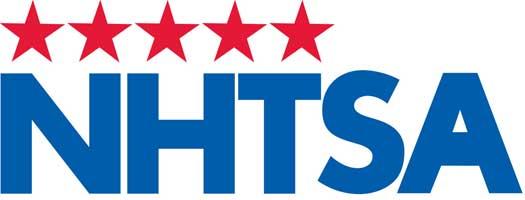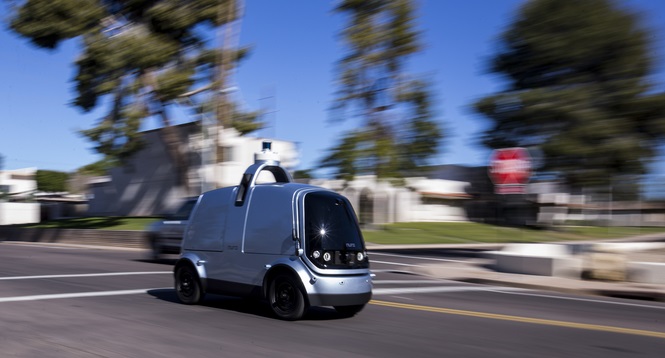Now Reading: US allows autonomous vehicle bypass human-driver safety rules
-
01
US allows autonomous vehicle bypass human-driver safety rules
US allows autonomous vehicle bypass human-driver safety rules

For the first time, the U.S. government’s highway safety agency has allowed a company’s request to bring a self-driving vehicle on the road that doesn’t require to meet the same federal safety standards for automobiles controlled by humans.
The National Highway Traffic Safety Administration (NHTSA) granted temporary approval for Silicon Valley robotics company Nuro to operate low-speed autonomous delivery vehicles that were made without any accommodations for human drivers. This indicates no side and rear-view mirrors, windshield wipers, steering wheels or brake pedals.
The vehicles were subject to federal standards earlier for low-speed vehicles that travel under 25 miles per hour. Those didn’t need to include steering wheels, brake pedals or human backup drivers, but needed to have windshield wipers, backup camera displays and mirrors. Nuro’s battery-powered vehicles can be supervised and controlled remotely by a human operator, if required.
The approval is the first indication that NHTSA is making a shift from abstract statements and voluntary standards governing autonomous automobiles to actual regulation, stated Bryant Walker Smith, a University of South Carolina law professor interested in vehicle automation. It’s an indication that the agency, which has stated publicly that it doesn’t want to stand in the way of the latest technology, is likely to allow more vehicles, he said.
“This is the first time ever that NHTSA said ‘yes we approve this vehicle that does not meet traditional driver-oriented standards,’” he stated. “That’s a big step because it makes it much more concrete, more real for the agency and really for the public.”
Under the temporary allowance, Nuro will have to make real-time safety reports to NHTSA. Nuro also will have to hold regular meetings with the agency and also consult the community in areas where the vehicles will travel.
“NHTSA is dedicated to facilitating the safe testing and deployment of advanced vehicle technologies, including innovative vehicle designs, which hold great promise for future safety enhancements. As always, we will not hesitate to use defect authority to protect public safety as necessary,” stated NHTSA Acting Administrator James Owens.
The agency will use enforcement powers if it discovers any evidence of an unreasonable risk to safety, the statement included.
Technology companies and automakers have been testing autonomous vehicles without NHTSA approval in the past as they have had steering wheels, brake pedals and other functions required of human-piloted cars and trucks.
Stay Informed With the Latest & Most Important News
Previous Post
Next Post
-
 01Polestar Boss Says It’s Time To Outrun BMW M And Mercedes-AMG
01Polestar Boss Says It’s Time To Outrun BMW M And Mercedes-AMG -
 02Spy Shots: 2027 Mitsubishi Pajero Spotted in Testing Ahead of Possible U.S. Return
02Spy Shots: 2027 Mitsubishi Pajero Spotted in Testing Ahead of Possible U.S. Return -
 032026 Toyota Hilux EV: A Powerful Truck with Silent Torque
032026 Toyota Hilux EV: A Powerful Truck with Silent Torque -
 04Spy Photos: VW ID. Polo GTI Goes Electric with 223 HP and 280 Miles of Range
04Spy Photos: VW ID. Polo GTI Goes Electric with 223 HP and 280 Miles of Range -
 05The Controversial Ford Voodoo V8 That Was Killed Off Too Early
05The Controversial Ford Voodoo V8 That Was Killed Off Too Early -
![2027 Mercedes-Benz S-Class Debuts with V8 Engine [Photo Gallery]](https://speedlux.com/wp-content/uploads/2026/01/2027-Mercedes-Benz-S-Class-33-155x125.jpg) 062027 Mercedes-Benz S-Class Debuts with V8 Engine [Photo Gallery]
062027 Mercedes-Benz S-Class Debuts with V8 Engine [Photo Gallery] -
 07Hyundai Palisade’s Breakout Year Shows How Quickly the Market Can Turn
07Hyundai Palisade’s Breakout Year Shows How Quickly the Market Can Turn


![2027 Mercedes-Benz S-Class Debuts with V8 Engine [Photo Gallery]](https://speedlux.com/wp-content/uploads/2026/01/2027-Mercedes-Benz-S-Class-33-700x394.jpg)










































